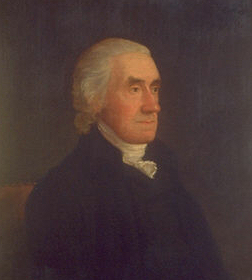A Quote by Joseph Addison
A source of cheerfulness to a good mind is the consideration of that Being on whom we have our dependence, and in whom, though we behold Him as yet but in the first faint discoveries of His perfections, we see everything that we can imagine as great glorious, or amiable. We find ourselves everywhere upheld by His goodness and surrounded by an immensity of love and mercy.
Related Quotes
When shall it be that we shall taste the sweetness of the Divine Will in all that happens to us, considering in everything only His good pleasure, by whom it is certain that adversity is sent with as much love as prosperity, and as much for our good? When shall we cast ourselves undeservedly into the arms of our most loving Father in Heaven, leaving to Him the care of ourselves and of our affairs, and reserving only the desire of pleasing Him, and of serving Him well in all that we can?
I beg Our Lord, Monsieur, that we may be able to die to ourselves in order to rise with Him, that he may be the joy of your heart, the end and soul of your actions, and your glory in heaven. This will come to pass if, from now on, we humble ourselves as He humbled Himself, if we renounce our own satisfaction to follow Him by carrying our little crosses, and if we give our lives willingly, as He gave His, for our neighbor whom He loves so much and whom He wants us to love as ourselves.
God is goodness itself, in whom all goodness is involved. If therefore we love other things for the goodness which we see in them, why do we not love God, in whom is all goodness? All other things are but sparks of that fire, and drops of that sea. If you see any good in the creature, remember there is much more in the Creator. Leave therefore the streams, and go to the fountainhead of comfort.
I will not judge a person to be spiritually dead whom I have judged formerly to have had spiritual life, though I see him at present in a swoon (faint)as to all evidences of the spiritual life. And the reason why I will not judge him so is this -- because if you judge a person dead, you neglect him, you leave him; but if you judge him in a swoon,(faint) though never so dangerous, you use all means for the retrieving of his life.
In making up my mind as to what Mr. Lincoln really believed, I do not take into consideration the evidence of unnamed persons or the contents of anonymous letters; I take the testimony of those who knew and loved him, of those to whom he opened his heart and to whom he spoke in the freedom of perfect confidence.
Nothing can tend so much to humble us before the mercy and justice of God as the consideration of His benefits and our own sins. Let us, then, consider what He has done for us, and what we have done against Him; let us call to mind our sins in detail, and His gracious benefits in like manner, remembering that whatever there is of good in us is not ours, but His, and then we need not be afraid of vainglory or of taking complacency in ourselves.
The evil of the actual disparity in their ages (and Mr. Woodhouse had not married early) was much increased by his constitution and habits; for having been a valetudinarian all his life, without activity of mind or body, he was a much older man in ways than in years; and though everywhere beloved for the friendliness of his heart and his amiable temper, his talents could not have recommended him at any time.
He that outlives a wife whom he has long loved, sees himself disjoined from the only mind that has the same hopes, and fears, and interest; from the only companion with whom he has shared much good and evil; and with whom he could set his mind at liberty, to retrace the past or anticipate the future. The continuity of being is lacerated; the settled course of sentiment and action is stopped; and life stands suspended and motionless.
Such was the will of the Father that his Son, blessed and glorious, whom he gave to us, and who was born for us, should by his own blood, sacrifice, and oblation, offer himself on the altar of the cross, not for himself, by whom "all things were made," but for our sins, leaving us an example that we should follow his steps.
God made the world for the delight of human beings-- if we could see His goodness everywhere, His concern for us, His awareness of our needs: the phone call we've waited for, the ride we are offered, the letter in the mail, just the little things He does for us throughout the day. As we remember and notice His love for us, we just begin to fall in love with Him because He is so busy with us -- you just can't resist Him. I believe there's no such thing as luck in life, it's God's love, it's His.
God's wrath is not an implacable, blind rage. However emotional it may be, it is an entirely reasonable and willed response to offenses against his holiness. But his love . . . wells up amidst his perfections and is not generated by the loveliness of the loved. Thus there is nothing intrinsically impossible about wrath and love being directed toward the same individual or people at the same time. God in his perfections must be wrathful against his rebel image-bearers, for they have offended him; God in his perfections must be loving toward his rebel image-bearers, for he is that kind of God
Every man should write a brief history of his life: his parentage, his birth, his religion, when he was baptized and by whom, when ordained, what to, and by whom-give a brief sketch of all his missions and of all his official acts and the dealings of God with him. Then if he were to die and the historians wished to publish his history, they would have something to go by.



































